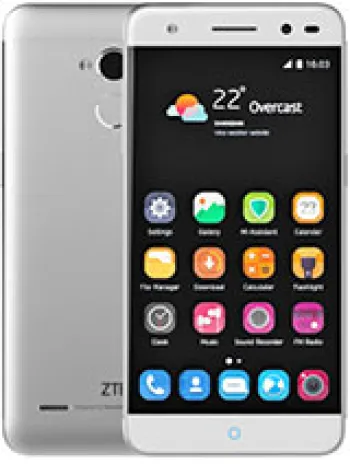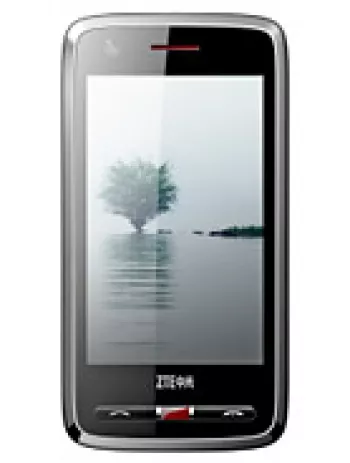
Overview
The ZTE nubia N1 lite was announced in February 2017 and released in April 2017. Designed as an entry-level smartphone, it offers a range of features that cater to users looking for basic functionality at an affordable price. It supports various network technologies, including GSM, HSPA, and LTE, making it a versatile device for connectivity.
Design and Build
The ZTE nubia N1 lite's body dimensions are 153 x 77.5 x 8.4 mm, and it weighs 171 grams, making it reasonably compact for a phone with a 5.5-inch display. It is designed with a hybrid dual-SIM slot, allowing users flexibility in managing their contacts and data plans. The phone is available in classic black, giving it a sleek and understated appearance.
Display
This device features an IPS LCD of 5.5 inches, offering a screen-to-body ratio of approximately 70.3%. The display resolution is 720 x 1280 pixels, translating into a pixel density of roughly 267 ppi. This resolution supports comfortable reading, browsing, and video playback although, by today's standards, it may not be the sharpest available.
Performance
Powered by a Mediatek MT6737 chipset, the nubia N1 lite features a quad-core 1.5 GHz Cortex-A53 processor and a Mali-T720MP2 GPU. Although modest, this configuration is sufficient for basic tasks such as browsing the internet, using social media apps, and light gaming. The phone runs on Android 6.0 Marshmallow, which no longer receives updates but provides a straightforward and familiar user interface.
Storage and Memory
The nubia N1 lite is equipped with 2GB of RAM and 16GB of internal storage. While this may seem limited, users can expand the storage via a microSDXC card, which occupies a shared SIM slot. This means users must choose between an additional SIM card and expanded storage, a common trade-off in hybrid systems.
Cameras
For photography, the nubia N1 lite includes a single 8 MP rear camera with autofocus, dual-LED flash, panorama, and HDR capabilities. It can record video in 1080p at 30 frames per second. The front-facing camera is a 5 MP shooter with an LED flash, adequate for selfies and video calls.
Sound and Multimedia
The device comes with a loudspeaker and a 3.5mm audio jack, supporting the use of wired headphones, a feature that has become less common in modern smartphones. The nubia N1 lite is designed to meet the basic multimedia needs of users, offering FM radio and a standard set of audio functionalities.
Connectivity and Features
In terms of connectivity, the smartphone supports Wi-Fi 802.11 a/b/g/n, Bluetooth 4.1, GPS, and microUSB 2.0. It does not feature NFC, which might be a limitation for users looking for wireless payment options. It includes sensors such as a rear-mounted fingerprint sensor, accelerometer, proximity sensor, and compass, enhancing its functionality beyond basic phone operations.
Battery Life
The nubia N1 lite is powered by a non-removable 3000 mAh Li-Ion battery. Given the hardware specifications, this capacity should provide a decent level of endurance, sufficient for a full day of moderate use without needing a recharge. The absence of fast charging means recharging will take longer compared to more modern devices.
Market Position and Price
As an entry-level device, the nubia N1 lite was launched at an approximate price of 130 EUR. Its performance, design, and functions cater to users who require a smartphone for fundamental communication, internet use, and some multimedia activities without the complexities and higher costs associated with more advanced smartphones.
Conclusion
The ZTE nubia N1 lite presents a reasonable option for those seeking a budget-friendly smartphone with essential features. It combines a solid build with adequate performance for everyday use, though it's limited by its modest hardware and older operating system. Its hybrid SIM slot design, expandable storage, and reliable camera specifications add to its appeal among users who do not need cutting-edge technology but require a functional and dependable device.
Key Features of ZTE nubia N1 lite
- Supports GSM, HSPA, and LTE networks.
- 5.5-inch IPS LCD display with a resolution of 720 x 1280 pixels.
- Powered by Mediatek MT6737 chipset and Quad-core 1.5 GHz Cortex-A53 CPU.
- Offers 16GB internal storage with 2GB RAM, expandable via microSDXC.
- Main camera: 8 MP with autofocus, dual-LED flash, panorama, and HDR features.
- 5 MP front camera equipped with LED flash for selfies.
- Rear-mounted fingerprint sensor for enhanced security.
- 3000 mAh Li-Ion battery, non-removable.
- Built-in FM radio and 3.5mm headphone jack for audio connectivity.
- Wireless communication via Wi-Fi 802.11 a/b/g/n and Bluetooth 4.1.
- Compact design weighing only 171 g.
- Available at an affordable price of about 130 EUR.
Drawbacks of ZTE nubia N1 lite
- Limited software update support, as it runs on Android 6.0 (Marshmallow).
- Low internal storage capacity of only 16GB, which may fill up quickly.
- Low RAM capacity of 2GB, potentially affecting multitasking performance.
- Hybrid Dual SIM slot restricts expansion options if a second SIM is used.
- Display resolution is limited to 720 x 1280 pixels, which is low for a 5.5-inch screen.
- No information on display protection, raising concerns about screen durability.
- No NFC support, limiting contactless payment options.
- Limited processing power with a Quad-core 1.5 GHz Cortex-A53 CPU.
- Basic main and selfie cameras with 8 MP and 5 MP sensors respectively.
- Non-removable battery, which may be inconvenient for some users.
- No USB Type-C support, as it still uses microUSB 2.0.

View Also
More Phones
All Rights Reserved +14266 Phones © Mobilawy 2025

























